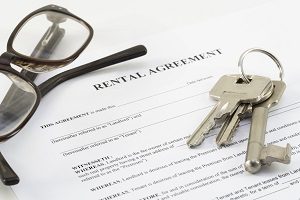Part of the American dream is to become successful enough to purchase your own house. However, for a variety of reasons, you may want to rent it out to someone else. It’s not uncommon, though there may be more hoops to jump through — such as HOA rules for renters — when your property is governed by an association.
The good news is that most associations don’t make renting out impossible to do. However, there are some things you must take into account before ultimately deciding to let someone else temporarily occupy your house.
HOA Rules for Renters Every Homeowner Must Know
As a member of a community association, you have certain rules and regulations to follow. HOA boards carry the weight of maintaining the community, so not just anyone can join the association without much thought and deliberation. That being said, homeowners who do want to rent out their homes must do their due diligence.
1. Check the HOA’s Governing Documents
 The first thing you must do is check your HOA’s governing documents, such as the CC&Rs and bylaws. These documents should contain any HOA renter restrictions or policies when it comes to renting out your house.
The first thing you must do is check your HOA’s governing documents, such as the CC&Rs and bylaws. These documents should contain any HOA renter restrictions or policies when it comes to renting out your house.
Homeowners are typically given copies of these documents when they first move in. However, if you’ve lost yours, you can always ask for another copy from your HOA or from your county’s real estate records office.
Failing to consult your HOA’s governing documents could get you in trouble with the association. If you’re unsure, it’s always a good idea to double-check with the HOA board itself.
2. Check the Laws of the Land
 Of course, apart from your association’s rules, you must also check the laws of the land. This includes federal, state, and local laws that relate to landlords and tenants.
Of course, apart from your association’s rules, you must also check the laws of the land. This includes federal, state, and local laws that relate to landlords and tenants.
For instance, in California, there are laws pertaining to how much you can charge a renter for their security deposit. According to California Civil Code – CIV § 1950.5, if you’re renting out an unfurnished home, you can charge as much as 2 months’ rent for the security deposit.
That number goes up to 3 months’ worth of rent for furnished homes. A recent change, however, specifies that landlords can only charge 1 month’s rent for the security deposit if the tenant is an active duty service member.
Rules Your HOA May Impose
As a property owner who wishes to rent out your home, you’re not exempt from rules and regulations. Your HOA may provide a set of standard rules you must follow. These rules are specifically designed to protect the well-being of the community as well as control what renters can and can’t do.
1. HOA Rules for Renters and Rental Agreement
 Just because a renter isn’t a permanent tenant doesn’t mean they can get away with everything. A renter is pretty much a member of the association, so they must abide by the rules the same way as other homeowners do.
Just because a renter isn’t a permanent tenant doesn’t mean they can get away with everything. A renter is pretty much a member of the association, so they must abide by the rules the same way as other homeowners do.
As such, homeowners must provide tenants a copy of the HOA rules for renters to follow. This includes the CC&Rs, the bylaws, the articles of incorporation, and any other governing documents that may apply. As a homeowner, it’s your responsibility to present this information to your tenants to ensure a smooth transition into the community.
Additionally, homeowners-turned-landlords must have tenants sign rental agreements containing copies of these HOA rules for renters. By signing, tenants acknowledge that they have read the rules and agree to follow them. These contracts must also contain the homeowner’s (landlord) emergency contact information.
2. Submitting Requests
Much like regular homeowners, renters may have certain requests they would like to bring to the HOA board’s attention. However, since they are only renters, they can’t go through the same channels as other property owners. Instead, renters must communicate and submit any requests to the board via their landlords.
Your HOA board may choose to set up a standard procedure for how requests must be filed by renters. In most cases, these requests must be in writing.
3. HOA Rental Restrictions or Limitations
 More often than not, HOAs would prefer the absence of renters in the community. After all, they can disrupt the community’s way of life. In order to limit the number of renters, an HOA can impose rental restrictions.
More often than not, HOAs would prefer the absence of renters in the community. After all, they can disrupt the community’s way of life. In order to limit the number of renters, an HOA can impose rental restrictions.
They may regulate how long tenants can rent a property or even institute a cap on the number of units homeowners can lease out.
If your HOA doesn’t have a cap yet, they can add it to the CC&Rs as an amendment, which will need to be voted on by the board or members. Before doing so, they must contact the HOA’s attorney to make sure they’re proceeding correctly. And remember that those who joined the association before the rental cap was set will be exempt from it.
Transferable and Non-Transferable HOA Rights
Homeowners have specific rights within the community, such as the right to vote for board members. However, renters won’t receive all of these rights when they become temporary members of the association. Let’s take a look at the transferable and non-transferable rights of tenants in HOAs:
- Use of Common Areas. Most HOAs require homeowners to transfer their rights to use common areas to their tenants. When in doubt, check the law and your association’s governing documents.
- Becoming a Board Member. Depending on what it says in an HOA’s governing documents, a renter or tenant may be able to serve on an association’s board of directors.
- Right to Vote. Similar to becoming a board member, renters’ right to vote should be stipulated in the governing documents. However, renters are typically not allowed to serve as proxies for other regular members of the association.
- Attending Meetings. Meetings are usually reserved for homeowners and, in this case, landlords. They can’t ask their tenants to serve as their proxy. However, this may vary depending on your HOA’s governing documents.
- Keeping Pets. If the association allows homeowners to keep pets, the right normally transfers to renters as well. However, it’s best to consult your HOA board if there are no provisions concerning pets in the governing documents.
How to Handle Renter Violations
 Should a renter violate any of the association’s rules and regulations, the homeowner (or landlord) must shoulder the consequences. Homeowners are accountable for the actions of their tenants. Therefore, any infractions on the tenant’s part will be held against the landlord.
Should a renter violate any of the association’s rules and regulations, the homeowner (or landlord) must shoulder the consequences. Homeowners are accountable for the actions of their tenants. Therefore, any infractions on the tenant’s part will be held against the landlord.
In case of a violation, the HOA board will notify the homeowner, who will then be responsible for paying any applicable fines. If it’s outlined in your lease, you can recover the fee from your tenant. If the tenant has multiple rule violations, the board can demand the eviction of the tenant, provided the right is stated in the association’s governing documents.
However, if the renter commits a crime, the HOA board doesn’t need to go through the homeowner. The board can report the tenant directly to law enforcement.
HOA Rules for Renters Exist for a Reason
As a homeowner, it’s understandable if you’re tempted to rent out your home, especially if you own multiple properties. After all, it’s hard to pass up the chance to earn a little extra cash on the side. However, if your property belongs to a community association, you must also understand that there are certain HOA rules for renters in place. While you may not agree with these rules, they exist to maintain the general well-being of the community.
If your HOA has trouble planning and enforcing HOA rules for renters, it’s a good idea to hire an HOA management company for assistance. Don’t hesitate to reach out to us.
RELATED ARTICLES:
- Dealing With Difficult Residents: Diffusing Anger In Your Community
- What Should You Know Before Moving Into An HOA Community
- 5 Steps To Handle HOA Complaints In Your Community




